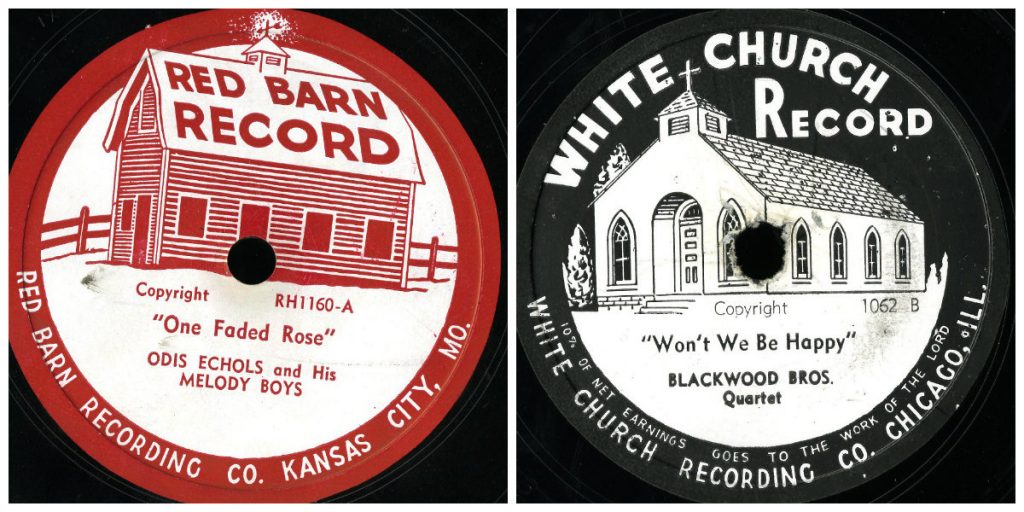
While pulling materials for a class instruction session, we came across these two strikingingly similar labels on 78s. Interested to know more, we did some research and found both labels were founded in the late 1940s in Chicago by former hillbilly comic Delbert “Deb” Dyer (for more details, see the always informative Hillbilly Researcher). He soon moved White Church offices from Chicago to Kansas in 1947 and eventually moved Red Barn there as well.
Odis “Pops” Echols was an original member of the original Stamps Quartet (aka Stamps Melody Boys), one of many white-gospel quartets supported by the Stamps-Baxter Music and Printing Company based in Dallas, Texas. His career took him across the country many times, from Chatanooga to Lubbock, Little Rock, Louisville, Los Angeles, and eventually Clovis, New Mexico. He formed many different iterations of the “Melody Boys,” including the one featured on the Red Barn record above which performed a mix of western music and gospel tunes.
The Blackwood Brothers remain a hugely popular gospel singing group. The original quartet was founded in Choctaw, Mississippi in 1934 by brothers Doyle Blackwood, James Blackwood, Roy Blackwood and his son, R. W. Blackwood. Like the Melody Boys, the Blackwood Brothers were affiliated with Stamps-Baxter and were featured on the radio out of Shenendoah, Iowa in the 1940s when they began recording for Dyer’s White Church label. With their post-WWII careers taking off, the Blackwoods left White Church and founded their own Blackwood Brothers label in 1948.
Dyer left White Church in 1949, but remained active with Red Barn until at least 1952. For a sample of the Red Barn / White Church sound, listen to Odis Echols and his Melody Boys from 78_11457 and the Blackwood Brothers from 78_14323 below.
78_11457_1_Odis Echols and his Melody Boys
78_14323_1, Blackwood Bros. Quartet, “Won’t We Be Happy” Southern Folklife Collection, The Wilson Library, UNC Chapel Hill
Skip to content
Exploring the Southern Folklife Collection
